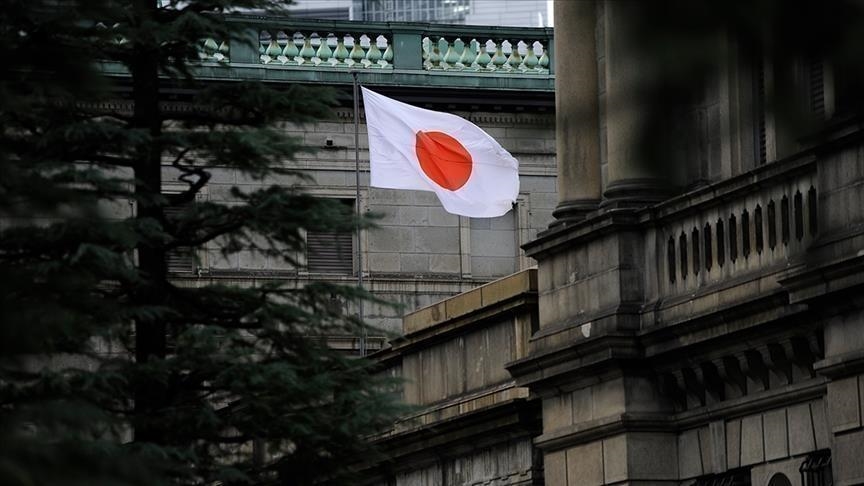EXPLAINER - Ruling coalition collapse in Japan could spring next premier from opposition bloc
Liberal Democratic Party (LDP) head traditionally becomes prime minister, which seems unlikely with exit of Komeito party

- Political funds scandal inside LDP has been major issue for which Komeito wanted new LDP President Sanae Takaichi to address
- Main opposition parties have 213 combined votes, less than required 233, more than 193 of LDP to elect premier
ISTANBUL
The opposition bloc in Japan could potentially elect its candidate as the country’s new prime minister after the ruling coalition bloc was upended Friday, after Komeito ended its alliance with the Liberal Democratic Party after more than 25 years.
Tetsuo Saito, the leader of the ruling coalition partner Komeito party, told newly elected Liberal Democratic Party (LDP) President Sanae Takaichi that the party will end the alliance, which was formed in 1999.
Takaichi, a conservative politician, was elected the first female president of the LDP earlier this month.
Traditionally, the leader of the LDP would become the prime minister as the party retained a majority in parliament, almost uninterruptedly since 1955, except for six years.
But support from Komeito had become crucial in recent years after LDP voters shifted to other parties, causing damage to the parliamentary majority.
With Komeito's support, Takaichi was very likely to become the first female prime minister of Japan. The prospect now, however, remains uncertain after the collapse of the coalition.
Although the coalition did not gain a majority in parliament in the general elections last year, the alliance was short by 12 lawmakers to get a majority of 233 votes in the lower house, despite some support from independent lawmakers.
In the 465-member lower house of parliament, the LDP is down to 191 seats from 256, while Komeito lost eight seats, including its chief, Keiichi Ishii, and fell to 24.
Incumbent Prime Minister Shigeru Ishiba is leading a minority government after no opposition party voted for him in the previous election.
The government bills and budget are passed with support from opposition parties on an issue-by-issue basis.
Given the shock announcement by Komeito, which has disagreed with Takaichi’s conservative stances on immigration, controversial temples linked to the wartime era in Japan, as well as ties with China and South Korea, the opposition is apparently cobbling up its own coalition.
The political funds scandal, which has wreaked havoc inside the LDP, has been a major issue on which Komeito wanted assurances that Takaichi would address.
Many LDP lawmakers have been accused of underreporting revenue generated through political fundraising events for several years.
Prosecutors have raided, questioned and arrested members of the LDP in a probe into a criminal complaint in the case.
Even the convening of the new parliament session to elect Ishiba’s successor has been delayed until at least Oct. 20.
The loss of the LDP-Komeito coalition in the upper house elections in July is also attributed to the political funds scandal, among other issues.
Combined opposition could beat Japan’s potential 1st female premier
Soon after Komeito’s announcement of exiting the coalition with the LDP, Japanese opposition politician and leader of the Democratic Party for the People (DPFP), Tamakai Yuichiro, threw his hat in the ring.
“I am prepared to serve as prime minister,” Yuichiro wrote on the US social media company, X.
His name was proposed by the main opposition Constitutional Democratic Party, which has 148 seats in parliament, while DPFP has 27 lawmakers.
The opposition Ishin Party has 38 seats, which brings the total opposition lawmakers to 213.
While the LDP-Komeito coalition commanded 221 lawmakers, including independents, the opposition could cross the 213 mark in new circumstances.
Komeito, with 24 lawmakers, has announced it will not vote for Takaichi in the premier election, leaving the LDP with 193 voters.
Other parties, including Reiwa, as well as the Japanese Communist Party, have nine and eight seats, respectively, among smaller parties.
Any premier election is expected to go to a second round since no party, or coalition, has the required support of 233 lawmakers to elect a prime minister.
If the opposition combines votes, it is highly likely that the next prime minister will again be a male.
If an opposition candidate wins the election, it would be the first time since 2012 that the LDP has been ousted from power, when CDP President Yoshihiko Noda was prime minister.
But Tamaki wants the opposition bloc to work with his party on national security policies.
Reports emerged earlier that Takaichi had reached out to DPFP for support during the premier election.
‘Division of power’ within LDP
LDP insiders are also thinking about out-of-the-box solutions to retain power.
According to an LDP lawmaker, Ishiba has been urged to withdraw his resignation announcement, according to the Yomiuri newspaper.
Under a proposed plan, Takaichi would remain as party president while Ishiba would continue as prime minister -- a role that aligns with Komeito’s demand that it will work with a moderate LDP leader.
The role of Komeito, which is backed by a Buddhist organization, has been consequential in Japan’s post-war history as it helped Tokyo establish ties with China.
And surveys conducted after Takaichi’s election have shown Tokyo’s ties with Beijing could worsen if she is elected premier.
Amid the political upheaval in Tokyo, China lodged a protest Friday against Takaichi, who accused Beijing of "repression" of human rights in the Inner Mongolian Autonomous Region.
Chinese Foreign Ministry spokesman Guo Jiakun reminded Japan of its aggression and that it committed "innumerable crimes” during wartime.
Tokyo, which has "a notorious record in human rights issues," has no right to judge the human rights conditions of other countries, he said.
Guo, however, refused to comment on political developments in Japan, where businessmen have expressed concern about a possible power vacuum.








